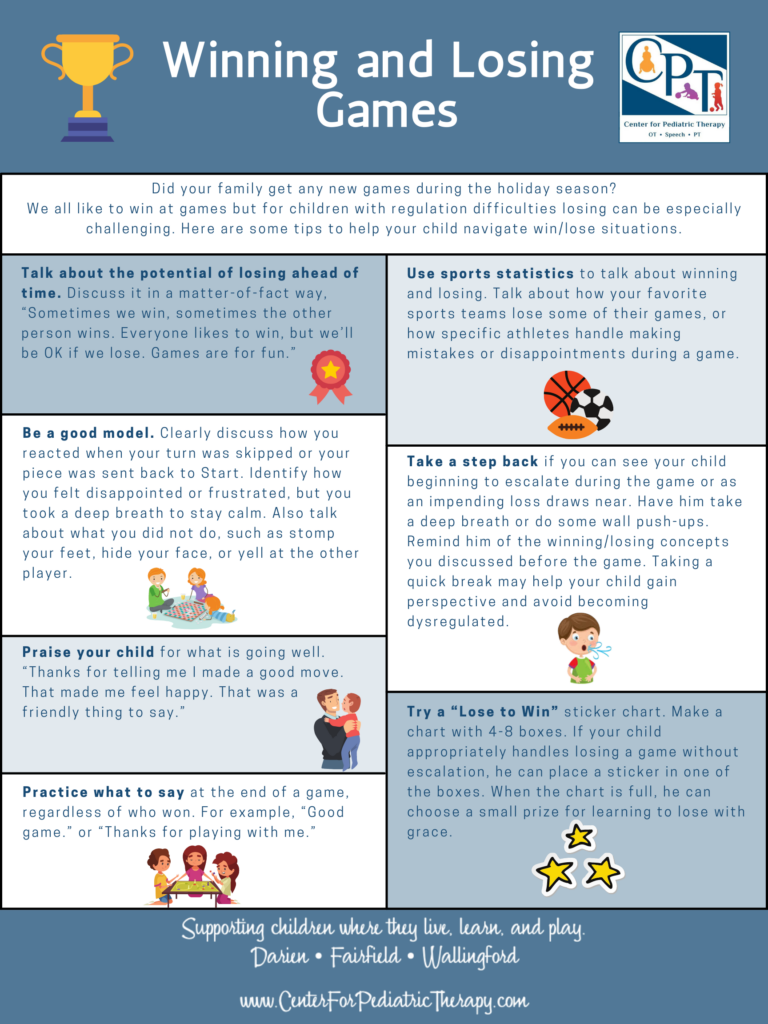
Did your family get any new games during the holiday season? We all like to win at games but for children with regulation difficulties losing can be especially challenging. Here are some tips to help your child navigate win/lose situations.
Talk about the potential of losing ahead of time. Discuss it in a matter-of-fact way, “Sometimes we win, sometimes the other person wins. Everyone likes to win, but we’ll be OK if we lose. Games are for fun.”
Be a good model. Clearly discuss how you reacted when your turn was skipped, or your piece was sent back to Start. Identify how you felt disappointed or frustrated, but you took a deep breath to stay calm. Also talk about what you did not do, such as stomp your feet, hide your face, or yell at the other player.
Praise your child for what is going well. “Thanks for telling me I made a good move. That made me feel happy. That was a friendly thing to say.”
Practice what to say at the end of a game, regardless of who won. For example, “Good game.” or “Thanks for playing with me.”
Use sports statistics to talk about winning and losing. Talk about how your favorite sports teams lose some of their games, or how specific athletes handle making mistakes or disappointments during a game.
Take a step back if you can see your child beginning to escalate during the game or as an impending loss draws near. Have him take a deep breath or do some wall push-ups. Remind him of the winning/losing concepts you discussed before the game. Taking a quick break may help your child gain perspective and avoid becoming dysregulated.
Try a “Lose to Win” sticker chart. Make a chart with 4-8 boxes. If your child appropriately handles losing a game without escalation, he can place a sticker in one of the boxes. When the chart is full, he can choose a small prize for learning to lose with grace.